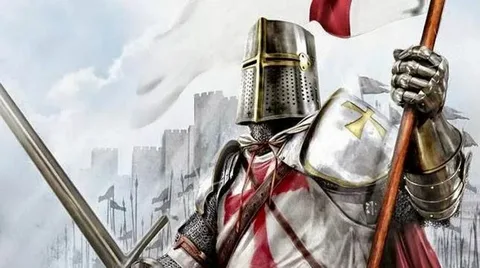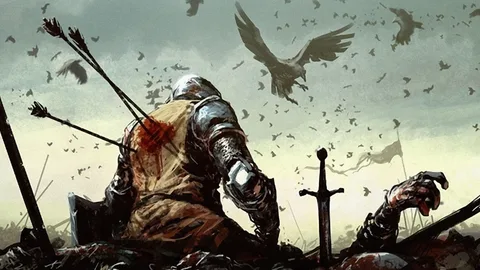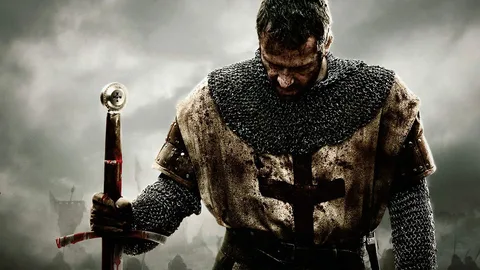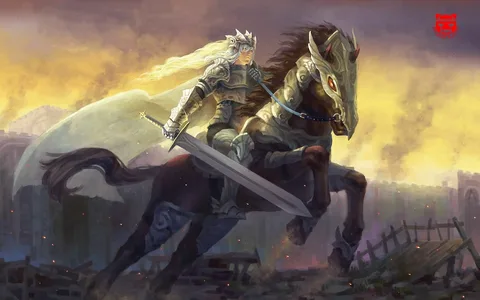What Does ‘Caballeros by Another Term NYT’ Mean?
Table of Contents
Introduction
“Caballeros by another term NYT” is a phrase that might catch your attention if you’re curious about how language changes over time. At first glance, it might sound a bit confusing, but once you break it down, it’s clear that this phrase highlights how the meaning of words evolves. The term “caballeros,” traditionally associated with knights or gentlemen, has taken on new meanings in modern times. In this post, we’ll explore what “caballeros by another term NYT” means and how it connects to today’s world.
The New York Times (NYT) often uses the phrase “caballeros by another term” to describe people who exhibit qualities of honor and respect, much like the old-fashioned gentlemen or knights. But these people may not necessarily fit the traditional image of a “caballero.” Instead, the phrase suggests that modern individuals—whether in politics, business, or everyday life—can show similar traits of kindness, integrity, and bravery without being literal knights. This change in meaning reflects a larger cultural shift and highlights how language can adapt over time.
Understanding “caballeros by another term NYT” is more than just understanding the words; it’s about recognizing how society’s values and expectations have changed. As we explore this phrase, we’ll dive deeper into the different ways it is used, especially in media like the New York Times, and how it helps us think about respect, honor, and modern leadership in new ways.

What is “Caballeros by Another Term NYT”?
“Caballeros by another term NYT” is a phrase that may sound a bit strange at first, but it carries a deeper meaning about how we use language. The word “caballeros” comes from Spanish, where it refers to gentlemen or knights—people who are brave, noble, and act with honor. Traditionally, a “caballero” was a person who followed a strict code of conduct, often seen as chivalrous and protective, much like the knights of old. However, in today’s world, the meaning of “caballeros” has evolved and broadened, and that’s where the idea of “another term” comes in.
The phrase “by another term” means that the word “caballeros” is being used in a new or different way. It no longer just refers to knights or noblemen. Instead, it can refer to anyone who displays similar qualities, such as respect, courage, and fairness. This shift shows how words can change their meanings over time, adapting to modern life and new social values. The use of this phrase in publications like the New York Times helps bring attention to this transformation in language.
In the New York Times, when the phrase “caballeros by another term” is used, it is often to describe people in leadership roles or those who show strong moral character. These people may not be knights in armor, but they demonstrate qualities of honor and integrity, much like a traditional caballero. For example, a political leader or a public figure might be described this way if they make decisions that are considered just and fair. The phrase highlights that these qualities are still important, even if the people we look up to don’t fit the traditional image of a knight.
By using the term “caballeros by another term,” the New York Times is reflecting a cultural shift. It’s not just about physical bravery or medieval ideals anymore. Today, it’s about showing leadership, kindness, and fairness in everyday life. The phrase helps us understand that heroism and nobility don’t always come in the form of swords and shields—they can come in the form of everyday actions that make the world a better place. It reminds us that anyone can embody the spirit of a “caballero,” even without the title.
Ultimately, “caballeros by another term NYT” is a modern take on an old concept. It’s a reminder that language and society evolve together. What once meant something very specific can grow to represent broader ideas that speak to our values today. The phrase challenges us to think differently about honor, integrity, and what it means to be a “gentleman” in today’s world.
Understanding the Meaning Behind ‘Caballeros by Another Term NYT’
To understand the meaning behind “caballeros by another term NYT,” it’s important to first think about what the word “caballeros” traditionally means. In Spanish, “caballeros” refers to knights or gentlemen—men who follow a code of honor and treat others with respect. These men were often seen as protectors of the weak, defenders of justice, and symbols of bravery. Over time, however, the word “caballeros” has come to represent more than just knights from history. It now also refers to anyone who displays those same noble qualities, even if they don’t fit the classic image of a knight.
The phrase “by another term” suggests that the traditional meaning of “caballeros” has been expanded or redefined. It’s not just about wearing armor or living in a castle anymore. Instead, it can refer to anyone who embodies the values of chivalry, such as fairness, kindness, and integrity. When the New York Times (NYT) uses this phrase, it’s a way of showing that people who may not be knights in the traditional sense can still be considered “caballeros” by how they act and treat others.
In modern society, “caballeros by another term NYT” often refers to individuals who show leadership or moral strength. This could include political figures, business leaders, or even everyday heroes who demonstrate courage and kindness in their actions. By using this phrase, the NYT emphasizes that nobility and respect aren’t tied to titles or past eras but are qualities that anyone can possess today. This shift in meaning reflects how language evolves to match the needs and values of society.
The phrase also shows how words can adapt to reflect cultural changes. In the past, a “caballero” might have been someone who fought in battles or lived in a noble house. But today, the idea of being a “caballero” is much broader. It includes qualities like fairness, honesty, and helping others—values that are important in everyday life. This change in meaning reminds us that honor isn’t limited to the past but is still relevant in the modern world.
Understanding “caballeros by another term NYT” helps us realize that language isn’t fixed—it grows and changes over time. Words like “caballeros” remind us that traits like honor and respect are timeless, but how we define and apply them can evolve. The phrase encourages us to think about how we can embody these values in our own lives, no matter what era we live in.

Why Is ‘Caballeros by Another Term NYT’ Important in Language?
The phrase “caballeros by another term NYT” is important in language because it highlights how words can change over time to fit the needs and values of modern society. Language is not static; it evolves as cultures and societies shift. The way we use words reflects our current beliefs, customs, and challenges. By adapting older terms like “caballeros” to new contexts, we can keep the essence of the word alive while making it relevant to today’s world. This shows that language is always adapting and that meanings can stretch to match modern ideas and concerns.
Using phrases like “caballeros by another term” helps remind us that concepts like honor, respect, and chivalry are still important in modern society. These traits, once associated with knights and noblemen, are now applied to leaders, public figures, and even ordinary people who act with integrity and kindness. The phrase teaches us that anyone can embody the qualities of a “caballero,” no matter their background or social status. In this way, the phrase encourages a broader understanding of what it means to be noble or honorable today.
Another reason the phrase is important is that it reflects the changing role of language in media. The New York Times and other publications use language to shape how we think about the world. When they use the phrase “caballeros by another term,” they are not only describing people with these qualities but also pushing the boundaries of how we define nobility and respect. The media, through its use of language, can influence cultural attitudes and help shift old ideas into new perspectives that fit better with today’s values.
The phrase also challenges us to think more deeply about language itself. When we encounter expressions like “caballeros by another term,” we’re reminded that words have layers of meaning. They can be used in ways that expand our understanding of old ideas and make them more inclusive. This is a reminder that language is not just a tool for communication but a living, breathing part of our culture that reflects how we change and grow as people.
In summary, “caballeros by another term NYT” is important in language because it shows how words can adapt to reflect changing social values. It helps us see that noble qualities like honor and bravery can still exist today, even if they don’t fit the traditional image of a knight. It also reminds us that language is a powerful tool for shaping and reflecting the world around us, making it a key part of how we understand and define our culture.
The History of ‘Caballeros’ and Its Evolving Terms
The word “caballeros” has a rich history that dates back to medieval Spain. Originally, “caballero” referred to knights who were part of the noble class and followed a code of conduct called chivalry. These knights were expected to act with honor, bravery, and a sense of duty toward their community. They were often seen as protectors of the weak and defenders of justice. In this context, “caballeros” were admired for their courage and commitment to doing what was right, regardless of the personal cost. The term was deeply tied to the medieval idea of knights who fought in battles to defend their king, country, or faith.
As time passed, the meaning of “caballeros” began to evolve. During the Renaissance and beyond, the term expanded to include any man who displayed noble qualities, even if he wasn’t a knight. Gentlemen and upper-class men who lived with integrity, honor, and respect for others were also considered “caballeros.” These men didn’t necessarily fight in battles, but they upheld the values of the knights in their everyday lives. In this sense, “caballeros” became a symbol of personal responsibility and morality, not just military prowess.
In modern times, the term “caballeros” has continued to evolve. It is no longer strictly reserved for knights or gentlemen from high society. Today, the word is often used to refer to anyone—regardless of their social status—who embodies qualities like respect, fairness, and bravery. This shift reflects how society’s values have changed, moving away from a focus on birthright or wealth and toward personal character and actions. The modern “caballero” may not wear armor or hold a title, but their actions still reflect the same values that knights once embodied.
This evolution of “caballeros” is also tied to how language adapts to fit the times. As society has become more inclusive and diverse, the meaning of words like “caballeros” has expanded to reflect new understandings of honor and nobility. Where once only a select few could be considered true “caballeros,” today anyone who acts with integrity and honor can be seen as embodying the spirit of a caballero. This evolution shows how language not only changes with time but also adapts to the values of the society using it.
The term “caballeros” has come a long way from its medieval roots, but its core meaning—honor, respect, and integrity—remains the same. As society continues to change, the way we use words like “caballeros” will keep evolving. The phrase “caballeros by another term NYT” is just one example of how language can change to reflect modern ideas about nobility and leadership. What was once an exclusive term for knights is now available to anyone who demonstrates the qualities of a true “caballero.”

How ‘Caballeros by Another Term NYT’ Reflects Cultural Shifts
The phrase “caballeros by another term NYT” is a reflection of cultural shifts that have occurred over time, especially in how we view honor, leadership, and nobility. In the past, the idea of being a “caballero” was often tied to noble bloodlines and military service, with knights or gentlemen representing the ideal of honor and courage. However, as societies evolved, the concept of nobility expanded beyond the traditional image of knights in shining armor. Today, the New York Times and other publications use the phrase to show that these qualities of respect, bravery, and integrity can be found in many different walks of life, not just among those with titles or aristocratic backgrounds. This shift highlights how cultural values have changed over time, focusing more on personal character than on birthright or wealth.
As culture became more inclusive and diverse, the definition of “caballeros” began to evolve. In modern times, the idea of a “caballero” is not limited to the rich or powerful; it can refer to anyone who displays qualities like fairness, responsibility, and a commitment to doing what’s right. The New York Times often uses “caballeros by another term” to describe people in leadership roles who exhibit these characteristics, such as politicians, business leaders, or community figures. This change in usage reflects the growing appreciation for everyday people who lead with integrity, showing that nobility and honor are not confined to a particular social class or historical period.
This cultural shift is also tied to how language adapts to modern ideas and societal needs. In the past, many words had rigid definitions that were closely tied to specific classes or roles in society. However, in today’s world, language has become more flexible and inclusive. Terms like “caballeros” have taken on broader meanings that reflect a society where honor and integrity are valued in everyone, regardless of their social status. The New York Times’ use of the phrase “caballeros by another term” is a perfect example of how media outlets play a role in shaping cultural attitudes by using language in ways that resonate with contemporary values.
The phrase also reflects the shift toward a more global and diverse understanding of what it means to be noble or honorable. Historically, the concept of being a “caballero” was tied to specific cultural and geographical contexts, especially within Spain and its colonial influences. Today, however, people from all around the world can embody the qualities of a “caballero,” regardless of their background. The phrase “caballeros by another term” highlights the universal nature of these values, showing that honor and respect are qualities that transcend cultural and geographical boundaries.
Ultimately, “caballeros by another term NYT” is not just about the evolution of a word—it’s about understanding how cultural shifts impact our perceptions of leadership, respect, and honor. The New York Times, by using this phrase, is acknowledging that while the idea of what it means to be a “caballero” has changed, the core values of nobility—integrity, courage, and fairness—remain just as important today as they were in the past. This reflects a broader cultural movement that places importance on personal character, inclusivity, and the recognition of noble qualities in everyday people.
Is ‘Caballeros by Another Term NYT’ a Popular Phrase?
The phrase “caballeros by another term NYT” is not widely recognized as a common or popular phrase in everyday conversation, but it has gained attention within certain contexts, particularly in media. The New York Times (NYT) uses this expression to describe people who exhibit qualities traditionally associated with knights, like honor, integrity, and bravery, but who do not necessarily fit the traditional image of a “caballero” (knight). While the phrase itself may not be widely used in popular culture, its presence in respected publications like the NYT gives it some level of prominence, especially among readers who follow current events or cultural discussions.
The use of “caballeros by another term” in the NYT highlights an interesting shift in how the concept of nobility and leadership is viewed today. The phrase is typically applied to people who show strong moral character, regardless of their social or economic status. In this sense, it serves as a reminder that qualities like respect, fairness, and courage can be found in all types of people, not just those with noble titles. This shift has led to increased discussions in certain circles about the evolution of language and how we view honor in modern society.
Although the phrase itself might not be widely used outside of specific articles or contexts in the NYT, it reflects a growing interest in redefining traditional concepts of heroism and leadership. In a world where people are more focused on values such as equality and integrity, the idea of being a “caballero” has become more inclusive, allowing anyone who exhibits these qualities to be seen as a modern-day knight. This changing perspective is part of a broader trend in media and culture, where older ideas are being reimagined to fit contemporary values.
While the phrase “caballeros by another term” may not be something that most people use in everyday conversation, its meaning resonates with broader cultural shifts. As society continues to place more emphasis on personal character and moral actions, phrases like this one help bring attention to the fact that honor is not confined to the past or to a specific group of people. Instead, it is a quality that can be demonstrated by anyone, in any era, and in any situation.
In conclusion, while “caballeros by another term NYT” is not a widely popular phrase in the sense of being part of casual speech, it has become important in certain circles. Its use by respected media outlets like the New York Times helps reinforce the idea that nobility and honor are not just for the past or for a select few, but are values that anyone can embody today. Through its limited but impactful use, the phrase continues to shape our understanding of leadership, respect, and personal integrity.

Different Contexts for ‘Caballeros by Another Term NYT’
The phrase “caballeros by another term NYT” can be interpreted in different contexts, depending on the situation in which it is used. One of the primary contexts is in discussing modern-day leaders who show qualities traditionally associated with knights or gentlemen. In these cases, the phrase highlights individuals who may not have noble titles or be part of the traditional “caballero” class but who still exhibit qualities like bravery, honor, and integrity. For example, political figures, business leaders, or community activists might be referred to as “caballeros by another term” because they demonstrate moral leadership and strive to make decisions that benefit society, even when these decisions are difficult or unpopular.
Another context for using “caballeros by another term NYT” is in describing people who fight for justice or fairness, but not in the traditional sense of battlefields or knights in armor. For example, the phrase could be used to describe someone who takes a stand against social injustice, like an activist or a civil rights leader. These individuals might not fit the classic image of a “caballero,” but their actions reflect the same courage and sense of duty. The use of this phrase in such contexts helps to show that the qualities of nobility—such as standing up for what is right—are still valued today, and can be seen in those who fight for causes that improve society.
In a more personal context, “caballeros by another term NYT” can be used to describe ordinary individuals who show kindness, respect, and integrity in their everyday lives. The phrase broadens the meaning of being a “caballero” beyond the traditional view of noblemen or knights and places emphasis on the idea that these values can be found in everyone. For example, someone who regularly helps others, supports their family, or stands up for friends might be considered a “caballero” in this modern sense. The New York Times might use this phrase to acknowledge the importance of these everyday actions and remind readers that honor is not confined to people with titles or high status.
The phrase can also be used in the context of redefining traditional roles and expectations. For instance, it may highlight how modern ideas about leadership and honor have evolved. In the past, a “caballero” might have been someone who had military training or was part of a royal family, but today, the term can apply to anyone who shows moral fortitude and a sense of responsibility. In this way, “caballeros by another term” reflects a shift toward more inclusive views of leadership, where anyone, regardless of their background, can embody the values that were once exclusive to nobility.
Finally, the phrase can be used in a literary or cultural context to reflect how media outlets like the New York Times shape our understanding of the world. By using “caballeros by another term,” the NYT not only acknowledges the qualities of honor and bravery but also challenges traditional views about what makes a person noble or honorable. In doing so, it contributes to a broader cultural conversation about the evolving definition of leadership, fairness, and moral character in modern society. The phrase, in this context, encourages readers to think critically about how we define honor and who we consider to be true leaders in today’s world.
How the New York Times Uses ‘Caballeros by Another Term NYT’
The New York Times (NYT) uses the phrase “caballeros by another term” as a way to challenge traditional notions of nobility and leadership. The NYT often employs this expression to describe individuals who display qualities typically associated with knights or noble figures, such as integrity, courage, and honor, but who do not necessarily fit the classical image of a “caballero” or knight. By doing so, the publication acknowledges that these values are not confined to history or high-ranking individuals, but can be found in leaders from all walks of life, from political figures to everyday heroes.
In its articles, the New York Times uses “caballeros by another term” to emphasize that nobility and honor are not dependent on titles, wealth, or birthright. Instead, the phrase highlights individuals who, through their actions and character, exemplify the virtues of a “caballero” in modern society. For instance, someone who works tirelessly to improve their community or fights for justice might be referred to as a “caballero” by another term. The NYT uses this phrase to show that leadership today is about personal integrity and the ability to make ethical decisions, not about royal lineage or military conquest.
Another key aspect of how the New York Times uses the phrase is to bring attention to cultural shifts. As societies evolve, so too do the definitions of leadership and heroism. The NYT taps into this change by using “caballeros by another term” to describe those who may not be seen as traditional leaders but who nevertheless embody the qualities of honor and courage. In this way, the phrase serves as a reminder that nobility is not exclusive to those in power but is a set of values that can be practiced by anyone who strives to do what is right, regardless of their position in society.
The use of “caballeros by another term” also aligns with the New York Times’ broader journalistic approach of exploring social and cultural issues. The phrase is often used to explore how contemporary figures and movements are redefining traditional roles and expectations. By using this phrase, the NYT invites readers to reconsider what it means to be noble or honorable in today’s world. It suggests that while the image of the knight may be outdated, the virtues of courage, fairness, and respect continue to be essential in shaping our understanding of leadership.
In summary, the New York Times uses “caballeros by another term” to highlight the evolving nature of nobility and leadership. It draws attention to individuals who exemplify honor and integrity, even if they don’t fit the traditional mold of a knight or nobleman. Through this phrase, the NYT encourages readers to think critically about how leadership is defined in modern society and reminds us that true nobility comes from actions and character, not just titles or birthright.

Breaking Down the ‘Caballeros by Another Term NYT’ Phrase
The phrase “caballeros by another term NYT” is a unique and thought-provoking expression that carries significant meaning in modern discourse. To break it down, the word “caballeros” refers to knights or noblemen from historical Spanish-speaking cultures. In the past, a “caballero” was someone who was part of the elite class, known for their bravery, chivalry, and honorable conduct. However, the phrase “by another term” suggests that the concept of being a “caballero” has evolved beyond its traditional sense. It’s no longer reserved for those with noble titles or those engaged in warfare but has expanded to include anyone who demonstrates qualities such as integrity, courage, and leadership.
The use of “by another term” further highlights this shift. It suggests that the qualities associated with a “caballero” do not need to be defined by traditional social structures. Instead, people who display the same noble qualities today can be recognized as modern-day “caballeros,” even if they don’t fit the traditional image. This broadens the idea of nobility and allows a wider range of people to be viewed as embodying the virtues of a “caballero.” The phrase implies that being noble is about actions and character, not about title or background.
In the context of the New York Times, the phrase often appears in discussions about leadership and social change. By using “caballeros by another term,” the NYT acknowledges that modern leaders, activists, and everyday heroes may not be knights in the historical sense, but they display similar courage, responsibility, and commitment to justice. This phrasing encourages readers to see these modern figures as examples of nobility in a broader sense. It challenges traditional notions of what makes a person honorable and emphasizes that nobility is about the values one upholds, not just the status they hold.
The phrase also serves as a cultural commentary. As society changes, the concept of nobility becomes more inclusive and accessible. No longer is being a “caballero” something only available to the rich or the powerful. Today, anyone who acts with honor and fairness can be seen as embodying these noble qualities. The New York Times uses this phrase to reflect these cultural shifts and to question how we define leadership and heroism. It invites readers to consider that true nobility is more about moral integrity than societal position.
In conclusion, breaking down the phrase “caballeros by another term NYT” reveals a deeper understanding of how language and culture evolve. The phrase reflects a shift in how we view leadership and nobility, moving away from traditional class structures and embracing a more inclusive idea of honor. Through this expression, the New York Times highlights the importance of personal integrity, courage, and justice, demonstrating that these values are still very much alive today.
How ‘Caballeros by Another Term NYT’ Influences Our Language
The phrase “caballeros by another term NYT” plays an important role in shaping how we use language today, especially when it comes to how we define nobility and leadership. Traditionally, the word “caballero” referred to knights or gentlemen, people of noble birth and honor. However, with the introduction of “by another term,” the New York Times (NYT) encourages us to rethink the language we use when describing qualities like courage, honor, and responsibility. This shift influences our understanding of what it means to be noble, showing that nobility is no longer restricted to royalty or warriors, but is a quality anyone can embody.
As language evolves, phrases like “caballeros by another term” highlight how words can adapt to reflect modern values and cultural shifts. In the past, noble or honorable terms like “knight” or “gentleman” were often reserved for people with wealth or power. Today, the NYT’s use of the phrase invites us to recognize that these qualities can be found in anyone who acts with integrity, regardless of their social standing. By using the term “caballeros” in a broader context, the NYT influences how we view leadership and encourages the use of language that reflects more inclusive and diverse ideas of what it means to be noble.
The influence of “caballeros by another term” extends beyond just the words themselves—it challenges us to rethink the labels we place on people. Language is powerful because it shapes our perceptions, and this phrase pushes back against the idea that nobility or honor must come with a title or privileged background. The use of this phrase in articles and discussions broadens the way we talk about leaders and heroes, allowing us to appreciate a wider variety of individuals who demonstrate qualities like kindness, fairness, and courage. It helps foster a cultural shift where we recognize that nobility is defined by actions, not by birthright.
This change in language also encourages a more nuanced understanding of leadership. Instead of focusing only on traditional, top-down forms of authority—like kings, generals, or business magnates—people who lead through compassion, fairness, and personal integrity are now seen as equally important. The New York Times uses “caballeros by another term” to reflect this new perspective, showing that true leadership comes from moral values and the way people influence others through their actions. This shift in language is slowly changing how we perceive authority and respect in our society.
In conclusion, “caballeros by another term NYT” is more than just a phrase—it’s a reflection of how language can shape our understanding of nobility, leadership, and honor. By broadening the meaning of “caballero” to include those who exhibit integrity and bravery, regardless of their background, the phrase encourages us to see nobility in everyday people. It influences our language by encouraging us to define leaders not by their titles, but by their actions and character, paving the way for a more inclusive and thoughtful understanding of what it means to be noble.
Cultural Significance of ‘Caballeros by Another Term NYT’
The phrase “caballeros by another term NYT” holds cultural significance as it reflects broader changes in how we view leadership, nobility, and moral character. Traditionally, the term “caballero” has been linked to knights, warriors, or gentlemen of noble birth who were admired for their courage, honor, and chivalry. However, the introduction of “by another term” suggests that these qualities are no longer confined to historical figures or elite classes. Instead, the phrase acknowledges that these virtues can be found in everyday people, making the concept of nobility more inclusive and reflective of modern values.
The cultural shift represented by “caballeros by another term” speaks to the growing importance of moral leadership in today’s world. In the past, honor and nobility were often associated with power, wealth, or high social status. But in contemporary society, these qualities are increasingly seen in those who fight for justice, equality, and the common good. By using this phrase, the New York Times highlights the idea that anyone—regardless of their background—can embody the values of courage, fairness, and integrity. This shift is significant because it challenges traditional notions of who can be considered noble or heroic, making the term more accessible to all.
Additionally, the phrase resonates with the ongoing conversation about redefining heroism and leadership in modern culture. In the past, leaders were often admired for their ability to conquer, rule, or command. Today, leadership is more often associated with qualities like empathy, responsibility, and the ability to inspire positive change. “Caballeros by another term” captures this shift by emphasizing that true leadership isn’t about titles or military power, but about how one’s actions affect others. The phrase, therefore, has a cultural significance as it aligns with the values of today’s society, where social justice, equality, and personal integrity are paramount.
The use of “caballeros by another term” also highlights a growing recognition of diverse forms of leadership across cultures and communities. The term “caballero” traditionally carried a specific cultural and historical meaning in Spanish-speaking societies. However, by expanding the concept to include those who show noble qualities without fitting the traditional mold, the phrase embraces a more global and inclusive view of leadership. This broader definition reflects the diverse ways in which individuals can be leaders in their communities and in society at large.
In conclusion, the cultural significance of “caballeros by another term NYT” lies in its ability to challenge and redefine traditional ideas of nobility and leadership. It encourages a more inclusive view of honor, showing that anyone who exhibits courage, integrity, and fairness can be considered a “caballero” by another term. By highlighting these evolving concepts, the phrase plays an important role in reshaping our cultural understanding of heroism and leadership in a modern world that values social justice and personal responsibility.

How to Use ‘Caballeros by Another Term NYT’ in Your Own Writing
Using the phrase “caballeros by another term NYT” in your own writing can be a powerful way to convey themes of honor, leadership, and personal integrity. To use this phrase effectively, start by understanding its deeper meaning—it’s not just about knights or people with noble titles, but about individuals who display courage, fairness, and responsibility, regardless of their background. By recognizing this broader definition, you can incorporate the phrase into your writing to highlight people or actions that exemplify these qualities.
One way to use “caballeros by another term” in your writing is to describe modern-day leaders who might not have traditional titles, but who still demonstrate the virtues of nobility. For example, you could write about activists, community organizers, or social justice leaders who stand up for what is right, even when it’s difficult. By using the phrase in this context, you show that nobility is not just about lineage or wealth, but about the values a person holds and the impact they have on their community. This usage helps readers see the connection between historical ideas of nobility and the qualities we admire in today’s leaders.
Another way to use the phrase is to describe everyday heroes. Many people in our communities show qualities of nobility through their kindness, bravery, or willingness to help others. You can use “caballeros by another term” to highlight these individuals and emphasize that being noble is not limited to those with titles or great power. For example, you could write about a teacher who goes above and beyond to help students, or a neighbor who consistently looks out for others. By applying the phrase in this way, you show that honor and courage are qualities that can be found in ordinary people, not just those in the spotlight.
The phrase can also be used to reflect cultural shifts in how we define leadership and heroism. In the past, leaders were often viewed through the lens of power and control, but today, leadership is increasingly about empathy, understanding, and social responsibility. You can use “caballeros by another term” to describe leaders who may not hold traditional positions of power but who influence society in meaningful ways. This could include people who lead through their actions, like environmental activists, human rights advocates, or those who fight for equality. The phrase in this context emphasizes that leadership today is more about moral integrity than titles.
Lastly, when using “caballeros by another term” in your writing, consider its cultural significance. The phrase encourages a more inclusive view of nobility, one that acknowledges the diverse ways people can be heroic and lead with honor. It can be a great tool in your writing to challenge outdated views of who can be considered a “caballero” and to celebrate the many forms of leadership that exist in the world today. Whether you’re writing about a historical figure, a modern-day leader, or an everyday hero, this phrase can help you emphasize the importance of values over status in defining nobility.
In conclusion, “caballeros by another term NYT” is a versatile phrase that can be used in many different ways to convey themes of leadership, honor, and integrity. By incorporating it into your writing, you can highlight the evolving nature of nobility and encourage readers to think more inclusively about who embodies these virtues. Whether describing leaders, heroes, or community members, the phrase helps broaden the definition of nobility, making it more accessible and relevant to today’s world.
Conclusion
In conclusion, “caballeros by another term NYT” is a great example of how words can change over time. The phrase helps us understand that being a “caballero” is not just about being a knight or a gentleman in the old-fashioned sense. Today, it can refer to anyone who shows qualities like honor, respect, and bravery, no matter what their job or title is. The New York Times uses this phrase to remind us that people can still be honorable, even if they don’t fit traditional molds.
So, next time you hear or read “caballeros by another term NYT,” you’ll know it’s all about modern-day people who show the same values as knights and gentlemen. This shows how language keeps evolving, and how media like the New York Times helps us see the world in new ways. Understanding these changes in words makes us better at understanding the world around us.














Post Comment